Not Your Average Death Blog

Why Housing Security Gets Overlooked in Blended Families
Many families look stable from the outside—until one illness, one death, or one move changes everything. I see this especially in blended families and long-term relationships where people share a life but not legal ownership of the home they live in.
Today’s Tuesday Triage episode is about this quietly risky situation when someone lives in a home they don’t own. Things go sideways not because anyone has bad intentions, but because the legal protections people assume are there often aren’t.
Today’s question is from a listener named Sarah. Sarah’s dad lives in a condo owned by his long-term partner. They’re committed and they’ve made a life together. But legally, Sarah’s dad has no guaranteed right to stay in that home. If her dad’s partner became ill and needed to move out, or if she died, her father could suddenly find himself without housing. This situation is common in blended families, second relationships, and couples who choose not to marry.

The Hidden Tax Traps in Lifetime Gifts
Avoiding the Hidden Tax Trap in Lifetime Gifts
We love the idea of “getting things done.” We declutter, we consolidate, we “get the house out of Mom’s name.” But sometimes, our efforts to simplify make things more complicated, and more expensive, than we ever intended.

How to Talk to Your Parents About Getting Help at Home
If you’ve ever tried to talk to your parents about getting help at home, or moving out of their home, you already know that it’s not an easy conversation. They might tell you they’re “fine.” They might insist they don’t need help. They might even accuse you of trying to take away their independence. Meanwhile, you’re lying awake at night, wondering if they’re safe, if the stove is still on, or if that “little fall” was actually a big warning sign.
These challenges and anxieties are exactly why I wanted to bring Laura Lynn Morrissey, founder of Silver Savvy, onto The Death Readiness Podcast today. She helps families navigate aging and care decisions with less conflict and more problem-solving. We talked about how to start these conversations with your parents early, how to identify the “influencer” in your family, and how to make decisions that protect your parents’ dignity and your peace of mind.
Here are the biggest takeaways.

We Don’t Plan Because We’re Old. We Plan Because We Care.
Every week on The Death Readiness Podcast, I hear from listeners who are deep in the trenches, raising kids, helping parents, juggling jobs, and trying to hold all the loose threads of family life together.
Sometimes, they write in with questions for #TuesdayTriage episodes, such as:
“How do I start talking to my parents about their Will?”
“What happens if I’m named as executor and don’t want the job?”
“How can I protect my kids if something happens to me?”
And sometimes, their messages are more personal.

Do You Really Need a Will? Here’s How to Tell.
Most people assume a Will is the first step in estate planning.
But a Will doesn’t control everything you own; and in some cases, you might decide you don’t even need one.
When I practiced as an estate attorney, one of the questions I got more than any other was,
“Do I need a Will?”
And my answer was always the same:
“I don’t know — not yet.”
Because before you can decide whether you need a Will, you have to understand what a Will actually does.

Why You Don’t Have to Take the Executor Job
When people find out they’ve been named Executor in a family member’s Will, the reaction is almost always the same: panic.
Not because they don’t care, but because they know the person who chose them never really got their affairs in order. The paperwork’s scattered, the passwords are missing, the beneficiary designations are outdated, and there’s no clear roadmap for what comes next.
But here’s the truth: you don’t have to take the job.

From Problem-Aware to Solution-Aware: Why Families Get Stuck in Estate Planning
Most of us know we should have an estate plan.
But knowing there’s a problem doesn’t always mean knowing how to solve it.
That difference is the gap between being problem-aware and solution-aware, and it explains so much about why families put off planning, even when the need is obvious.
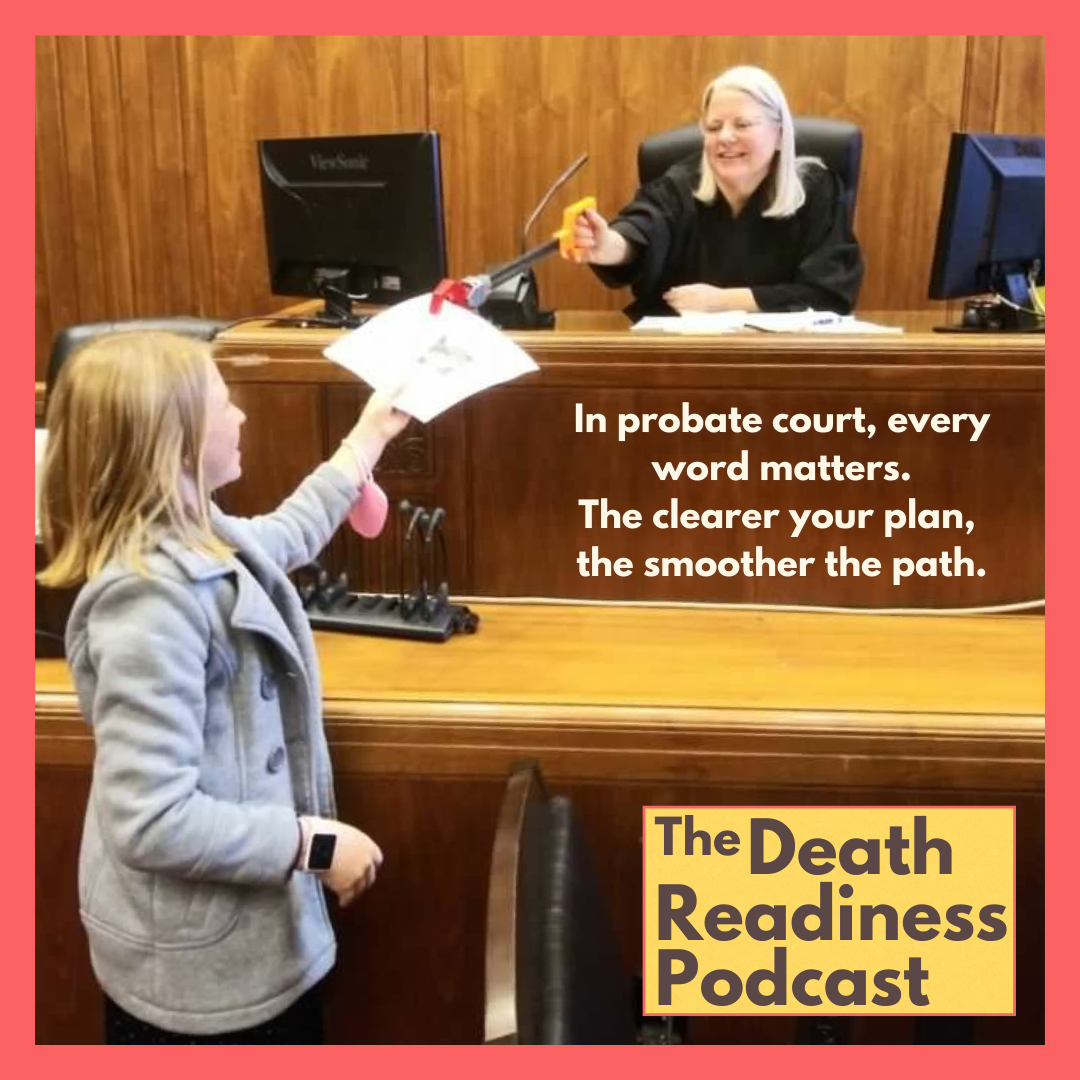
What Really Happens to DIY Wills in Probate Court
When most people say “I just want to avoid probate,” what they really mean is: I want things to be clear and simple. Today I sat down with Probate Court Judge Andra Hedrick from Davidson County, Tennessee, to demystify what probate actually is, why clarity matters, and how well‑intended “simple” Wills (handwritten notes, internet forms, AI drafts) can create complicated outcomes later on.
A Will isn’t a magic key the moment you sign it. It becomes legally effective only IF the court admits it to probate, confirming the basic requirements (like the right signatures, witnesses, and formalities) have been met.
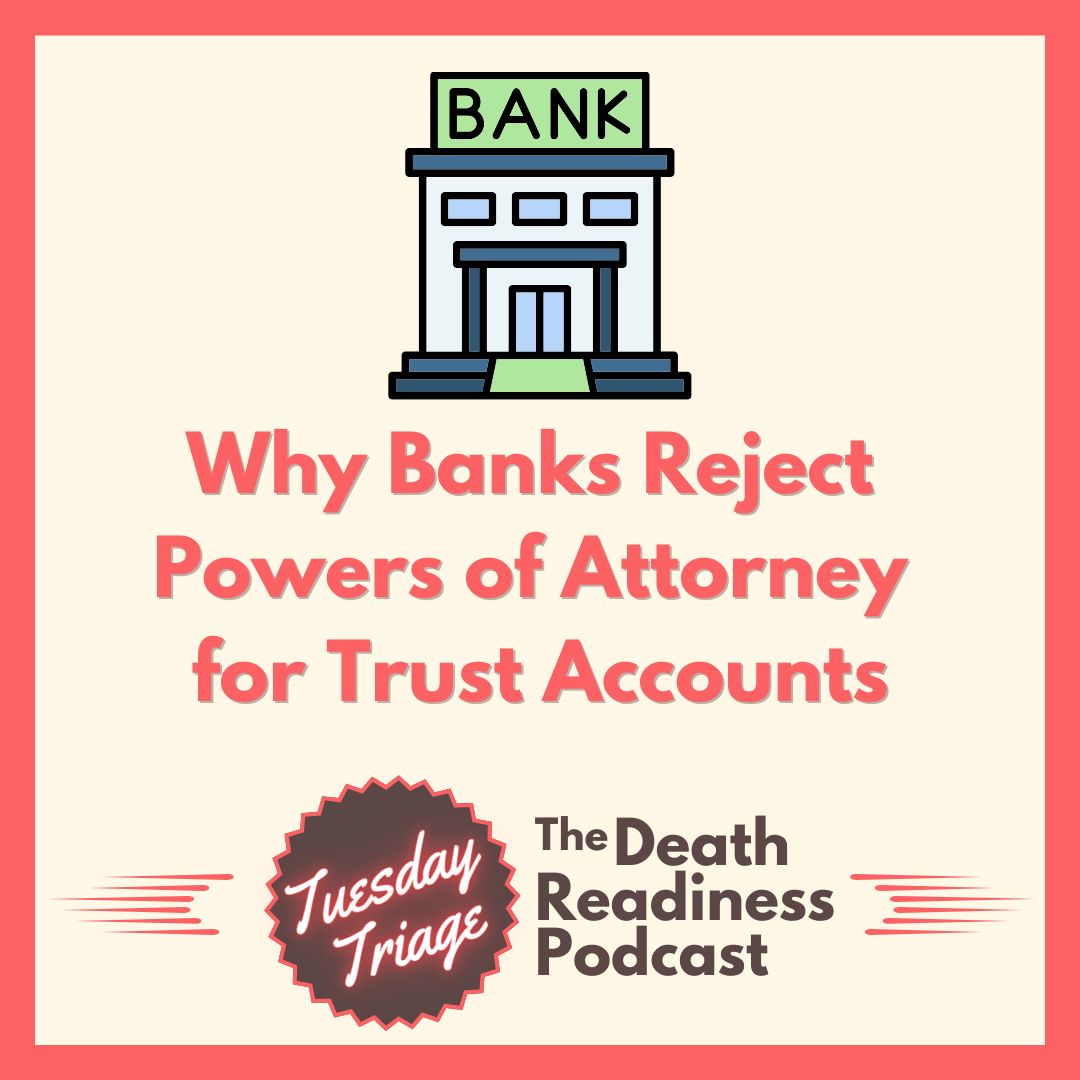
Why Banks Reject Powers of Attorney for Trust Accounts
Have you ever been surprised when a bank accepts a power of attorney for one account but rejects it for another? That’s exactly what happened to Lindsey from Tennessee. She could use her dad’s power of attorney for his checking and savings accounts, but when she tried to use it to access his trust accounts, the bank said no — and didn’t explain why.
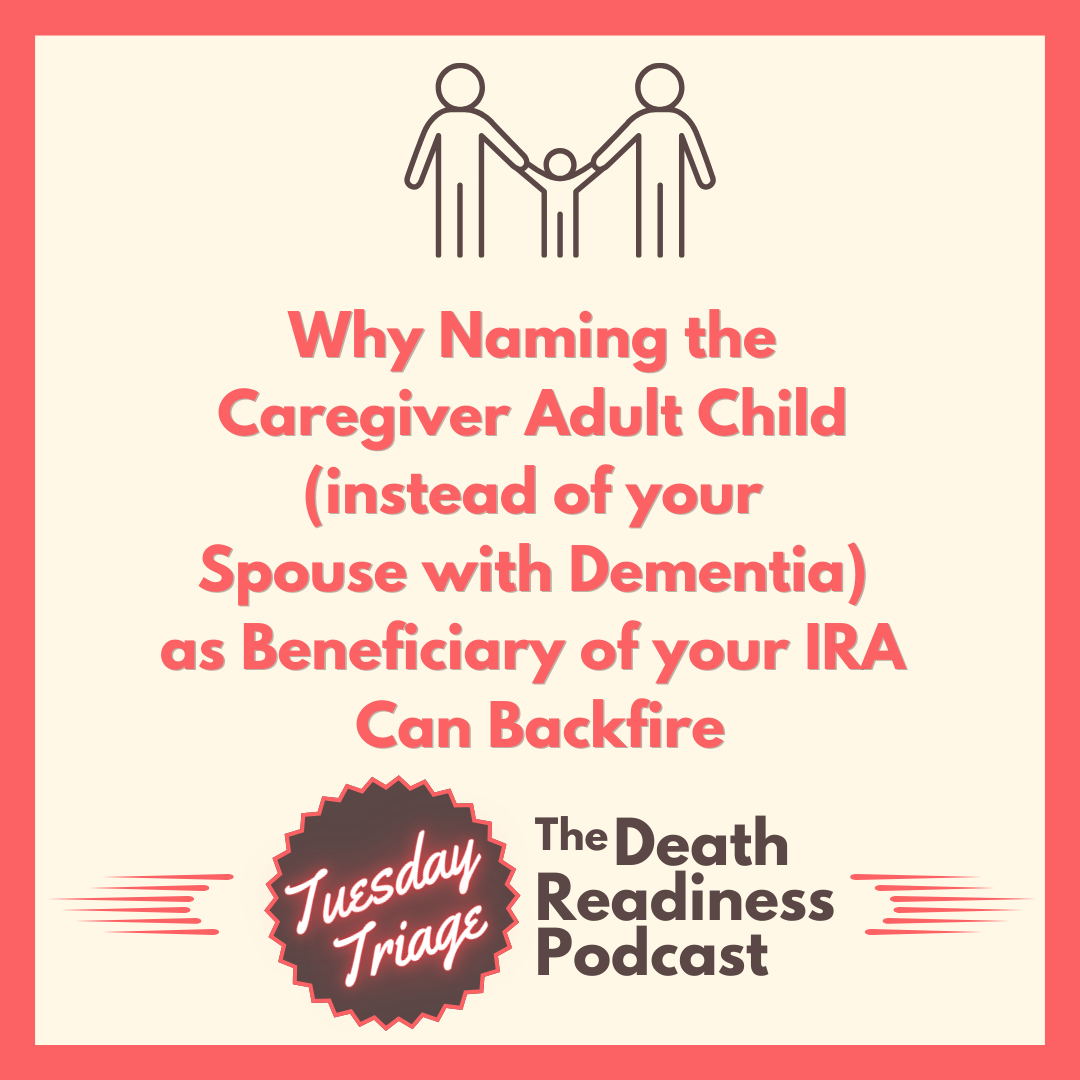
Why Naming the Caregiver Adult Child (instead of your Spouse with Dementia) as Beneficiary of your IRA Can Backfire
It’s a situation many families face: a healthy parent wants to make sure their spouse with dementia is cared for if the healthy parent dies first. The instinct might be to name the caregiving adult child as the beneficiary of the IRA — trusting them to use the funds for the parent who needs care. But what seems simple can actually put both the money and the spouse with dementia at risk.

What You Need to Know About Medicaid and Protecting Your Mom’s House
I get asked this all the time: “Should we put mom’s house in a trust in case she needs nursing home care?”
In today’s Tuesday Triage episode, I answer that question through the story of a listener named Eileen. She’s 73, lives alone in upstate New York, and owns her home. Her son-in-law thinks she should put her house in a trust to “protect it from the government.” Eileen’s not so sure.
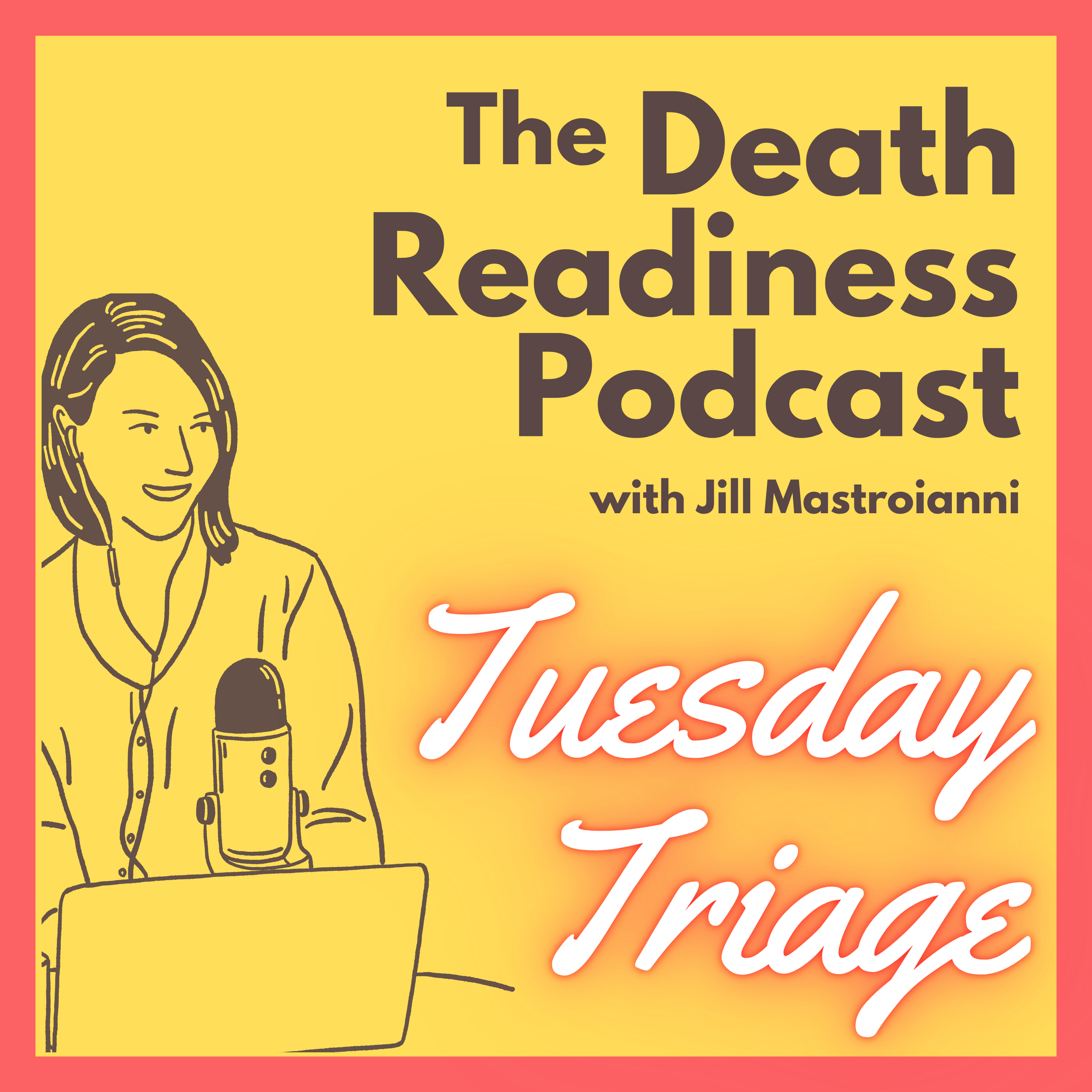
Why You Need (or Don’t Need) a Trust
If you’ve ever been told, “You need a trust,” and didn’t quite know what that meant, you’re not alone.
It’s something people hear from well-meaning friends, financial advisors, or maybe even their parents. But rarely does anyone slow down and explain why you might need one or whether it makes sense for your situation.
That’s what this week’s Tuesday Triage episode is all about.
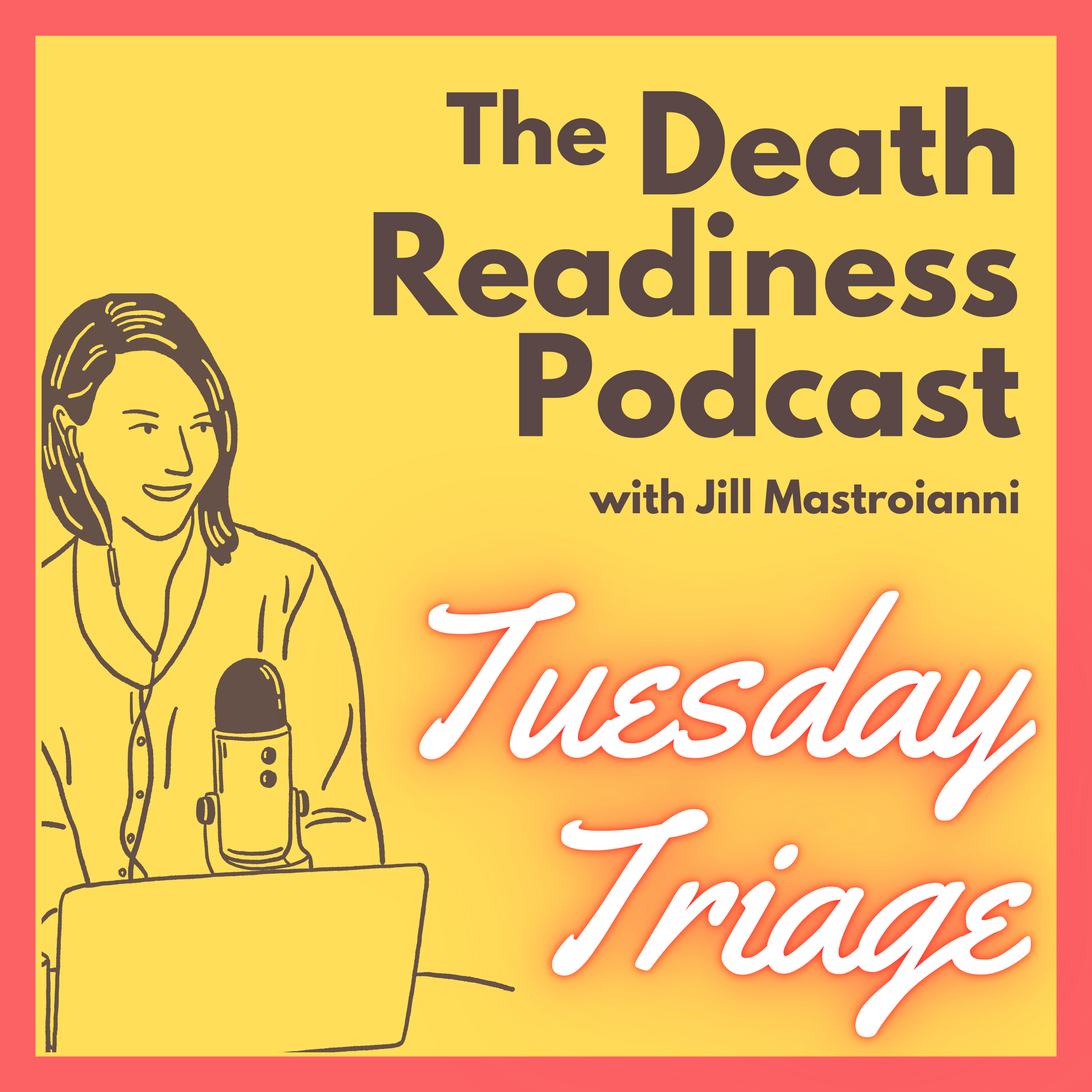
Preparing for your Parent’s Cognitive Decline Before it’s too Late
When a parent’s health starts to decline, the questions you never wanted to ask become urgent. Bills still need to be paid, decisions still need to be made. Are you legally allowed to step in?
This week on our first Tuesday Triage episode, I tackled a question from a listener named Molly. Her situation might sound familiar to you.

How to Succeed in the Caregiving Role No One Trained You For
Caregiving isn’t side work - it’s a leadership position. Host Jill Mastroianni talks with Jennifer O’Brien, author of Care Boss and The Hospice Doctor’s Widow, about the emotional labor, strategic thinking, and societal blind spots surrounding caregiving. Drawing from her experience leading healthcare organizations as well as caring for her husband and parents, Jennifer challenges the notion of caregiving as “soft” work and offers real-world tools to do it well. We cover everything from palliative care to “go bags” to how not to offer help to a caregiver.

It’s Going to Be Okay
In this episode of The Death Readiness Podcast, I’m not speaking as an estate attorney or a podcast host. I’m showing up as a daughter, a sister, a mother. A woman in the thick of the sandwich generation—caring for a child, walking alongside a father, and quietly planning for the day I’ll be the one who has to tell Dan again: “It’s going to be okay.”

Macaroni’s Story: Why We Hit Record—and Why You Should, Too
If you’ve been listening to The Death Readiness Podcast for a while, you know we often get into the legal mechanics of estate planning, end-of-life documents, and the practical steps that make life easier for the people we leave behind. But death readiness isn’t just about having the right paperwork. It’s about preparing your family for the day when you’re no longer here. It’s about preserving who you were—what you believed, what you lived through, what mattered to you.
And that kind of preparation doesn’t come in the form of a checklist. It comes in the form of stories. That’s why this episode - Macaroni’s Story: A Granddaughter Records Her Unknown Hero - is special. We’re sharing an excerpt from The Mastroianni Family Podcast—and giving you the tools to create a private family podcast of your own.

The Care We Can’t Do Alone: Real Talk on Aging and Support
In this week’s episode of The Death Readiness Podcast, I had the opportunity to talk with Mikelle Rappaport, a senior care consultant and founder of Golden Lifestyle Partners, and Bob Stanton, a family friend who recently made the difficult decision to move his wife of 54 years into a skilled nursing facility.

How to have conversations about death, money and estate planning
Talking about death, money, and planning ahead can be uncomfortable—especially with the people closest to us. But avoiding these conversations doesn’t make them go away; it just leaves our loved ones in the dark when they need clarity the most.
In Episode 4 of The Death Readiness Podcast, I spoke with Megan Malick, founder of A New Path, about why these topics are so difficult to discuss and how we can approach them in a way that is meaningful and productive. Megan brings a background in grief education, counseling, and after-loss support, helping people navigate both the emotional and logistical burdens of loss.